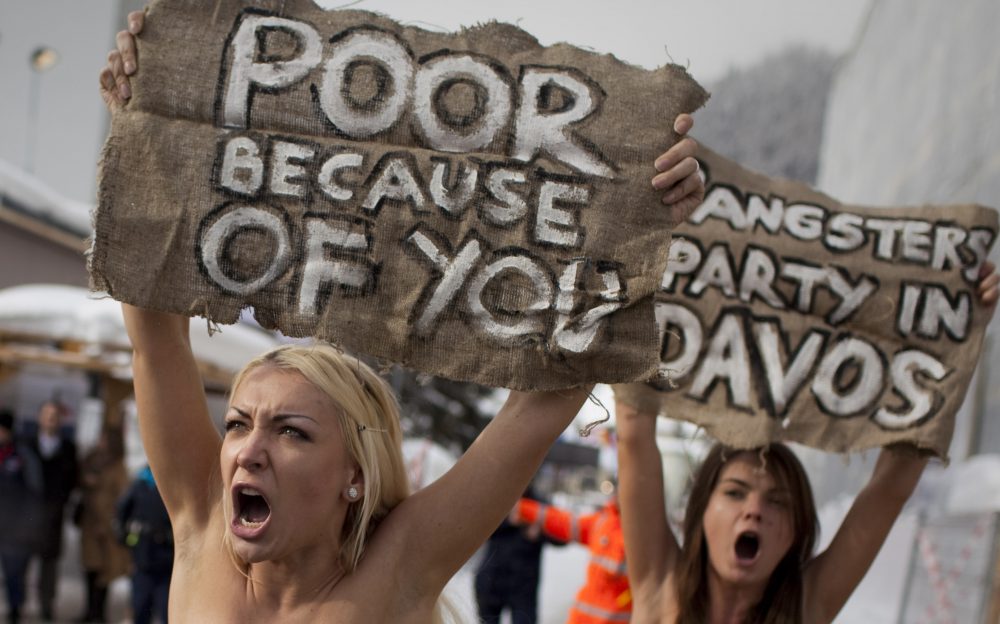
Photo by Anja Niedringhaus/Associated Press.
President Donald Trump argues that “globalization has made the financial elite who donate to politicians very, very wealthy” by allowing them to employ immigrants cheaply here while sending jobs and factories overseas. Senator Bernie Sanders calls globalization “an economic model developed by the economic elite to benefit the economic elite” who skirt regulations and the taxes that pay for public services. But has globalization really only helped the elites? After all, the explosion in international trade after the Second World War produced a huge rise in global living standards and lifted hundreds of millions of people out of poverty. And economic research shows that cheaper goods, cultural exchange, and greater opportunities for education and travel have benefited poor and middle class people. What’s behind the backlash against globalization? Are there ways to reshape policy to reduce globalization’s costs, without hurting the world economy or fueling nativist politics? UCLA Anderson economist Jerry Nickelsburg, business and policy entrepreneur Kati Suominen, UCLA legal scholar and labor policy expert Katherine Stone, and Los Angeles World Trade Center President Stephen Cheung visit Zócalo to discuss who wins and who loses in globalization.
The Takeaway
Globalization Doesn’t Have to Be a Winner-Take-All Deal
Free Trade Delivers Big Benefits, Panelists Say, but Workers Need Help and Protection
California has benefitted greatly from globalization—from cheap T-shirts, to leaps in technology, to proximity to Asia, to its agricultural exports. Why, then, is it disparaged by political leaders—as dissimilar as …






